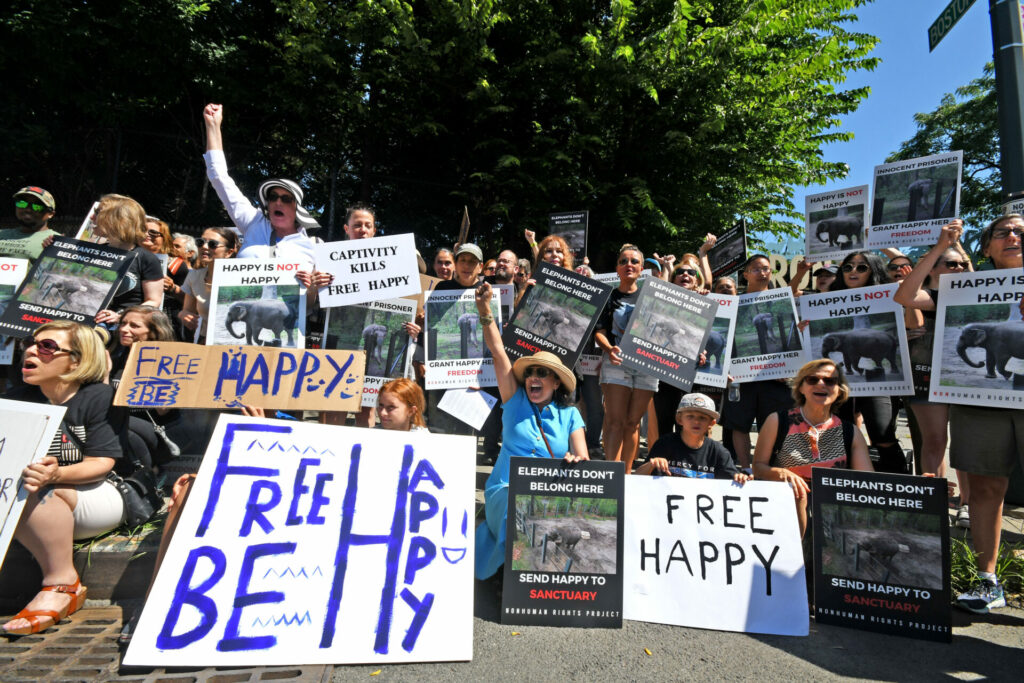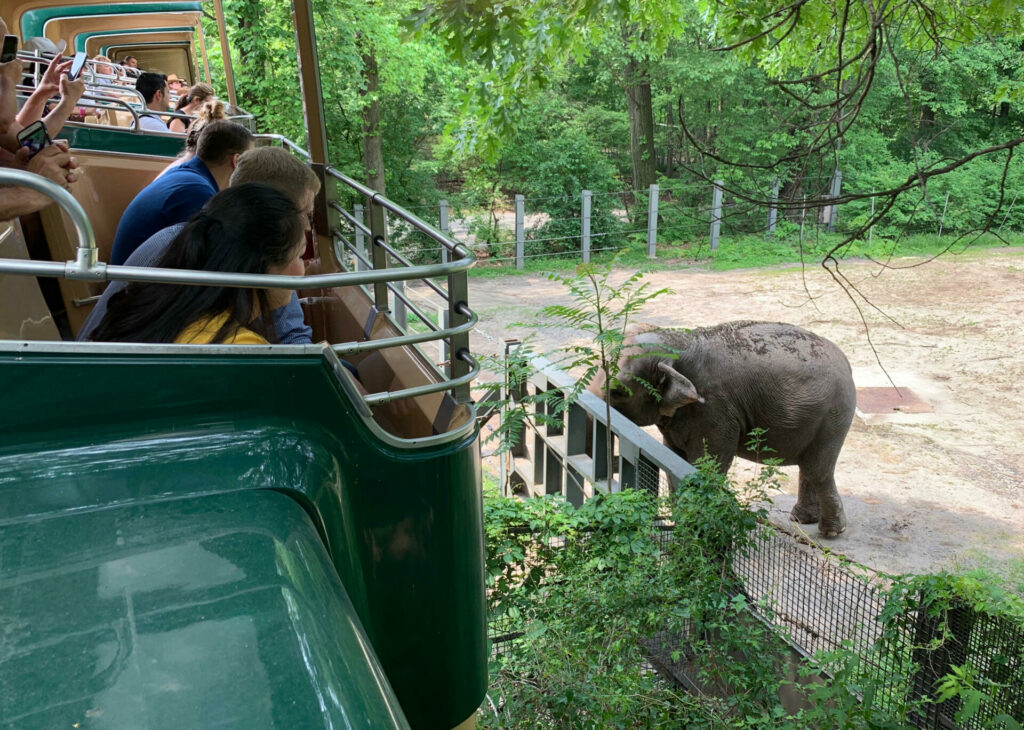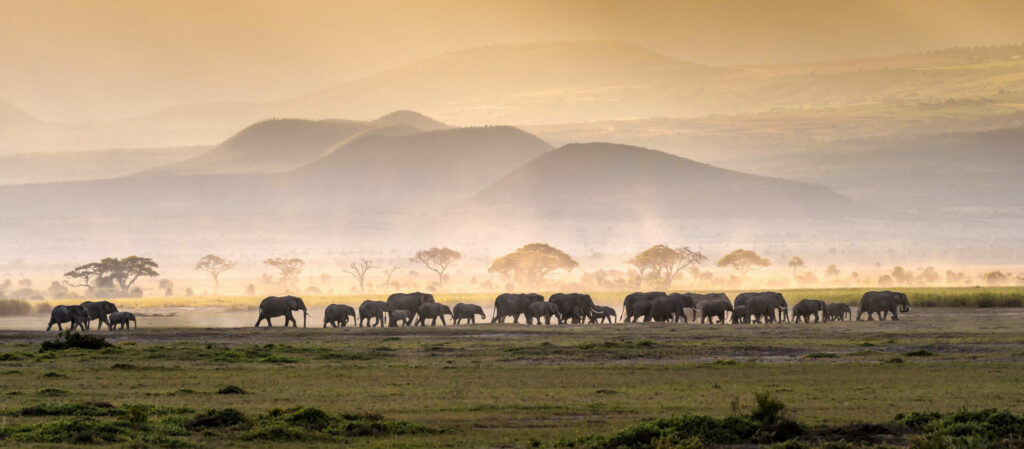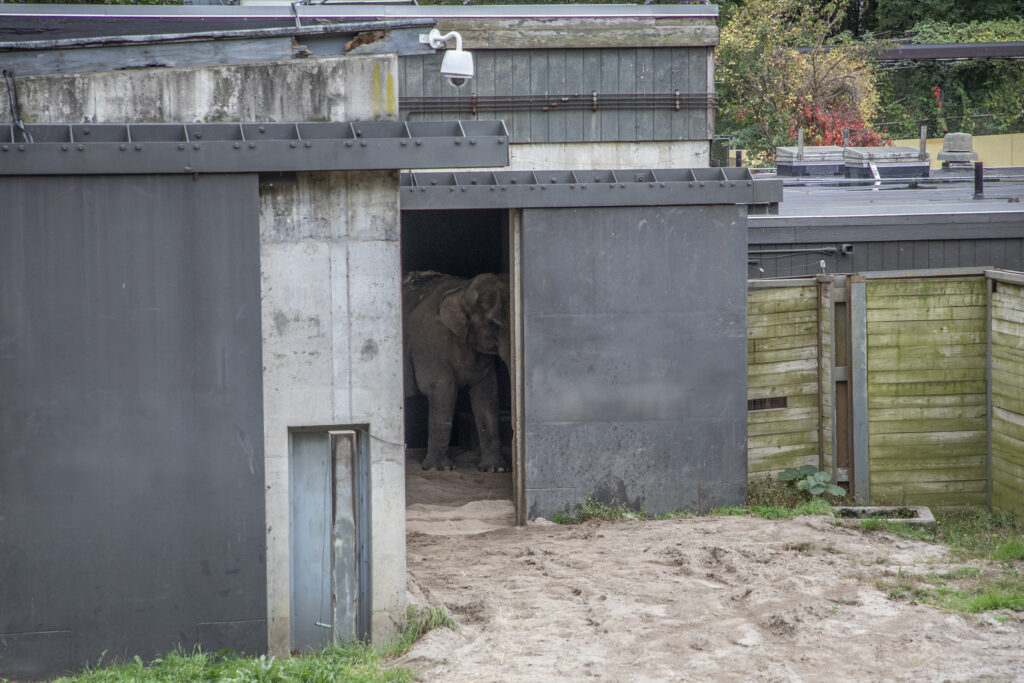In the animal rights world it’s the equivalent of the Johnny Depp Vs Amber Heard court case. There might not have been quite so many memes or TikTok videos, but headlines about the legal challenge to free Happy the unhappy elephant from Bronx Zoo in New York has made headlines around the globe.
Animal advocates decided to take legal action after seeing the plight of lonely Happy, an Asian elephant who has been living in solitude in a ‘one-acre prison’ for 16 out of her 45 years in captivity.
In a landmark case, they argued that the elephant was being effectively detained against her will, is a ‘legal person,’ and had the legal right to liberty before petitioning for her to be moved to a sanctuary.
‘A gilded cage is still a cage,’ said Justice Rivera, one of the dissenting judges. ‘Happy may be a dignified creature, but there is nothing dignified about her captivity.’
The Court of Appeals in New York – the state’s highest court – agreed to an historic hearing to consider whether a nonhuman animal can have legal rights and have those recognised by US law.
But, in a shock verdict, the court ruled against Happy, claiming that the elephant cannot be afforded the same legal rights as a person. The decision wasn’t unanimous though – two of the five judges dissented and issued statements about the cruelty of captivity.
‘A gilded cage is still a cage,’ said Justice Rivera, one of the dissenting judges. ‘Happy may be a dignified creature, but there is nothing dignified about her captivity.’


The other judge, Justice Wilson said: ‘When the majority answers, “No, animals cannot have rights,” I worry for that animal, but I worry even more greatly about how that answer denies and denigrates the human capacity for understanding, empathy and compassion.’
The ruling is not appealable but the animal-advocacy organisation behind the petition, the Nonhuman Rights Project (NhRP), the only organisation in America dedicated to securing rights for animals, has vowed to continue to fight for animals’ freedom.
‘This is not just a loss for Happy, whose freedom was at stake in this case and who remains imprisoned in a Bronx Zoo exhibit,’ a spokesperson said. ‘It’s also a loss for everyone who cares about upholding and strengthening our most cherished values and principles of justice – autonomy, liberty, equality, and fairness – and ensuring our legal system is free of arbitrary reasoning and that no one is denied basic rights simply because of who they are.’
The sad and complicated case centres around a concept created by UK law back in 1679, the Habeas Corpus Act, which literally means ‘you may have the body.’ Used to fight against detention by countries around the world, it has now become the legal basis of most cases seeking freedom for captive animals.
But an earlier court, and now the Appeals court, ruled that Happy and indeed all animals ‘are not “persons” entitled to rights and protections afforded by the writ of habeas corpus.’

The judges decision said: ‘Because the writ of habeas corpus is intended to protect the liberty right of human beings to be free of unlawful confinement, it has no applicability to Happy, a nonhuman animal who is not a ‘person’ subjected to illegal detention.
‘Scientists now have solid evidence that elephants are just as brilliant as they are big.’ Empathic, they are adept tool users, cooperative problem solvers and probably have a sense of self.
American Science
‘Thus, while no one disputes that elephants are intelligent beings deserving of proper care and compassion, the courts below properly granted the motion to dismiss the petition for a writ of habeas corpus.’
Room to Roam
Happy, who is believed to have been born in the wild in Thailand, and was captured and brought to America when she was one, arriving at the Bronx Zoo, in the Bronx, New York, in 1977. Although she has access to a one-acre enclosure, the New York Post wrote: ‘Happy spends most of her time indoors in a large holding facility lined with elephant cages, which are about twice the length of the animals’ bodies. The public never sees this.’
In the wild, elephants roam miles a day to find food, and mates, so being held in captivity affects their behaviour and health. Elephant expert Joyce Pool submitted an affidavit with the advocates’ petition stating: ‘Elephants have evolved to move. Holding them captive and confined prevents them from engaging in normal, autonomous behaviour and can result in the development of arthritis, osteoarthritis, osteomyelitis, boredom and stereotypical behaviour.

‘Held in isolation, elephants become bored, depressed, aggressive, catatonic and fail to thrive. Human caregivers are no substitute for the numerous, complex social relationships and the rich gestural and vocal communication exchanges that occur between free-living elephants.’
Evidence shows elephants are extraordinarily cognitively complex with advanced analytical abilities or as American Science puts it: ‘Scientists now have solid evidence that elephants are just as brilliant as they are big.’ Empathic, they are adept tool users, cooperative problem solvers and probably have a sense of self.
The average life span of an Asian elephant is 48 years, while the African elephant lives 60-70 years. Elephants in captivity have shorter life spans, which experts believe is due to stress from poor mental health.
They remember the locations of watering holes, hundreds of miles apart, year after year, can fashion twigs into fly swatters, form strong social bonds, or elephant families, and even seem to mourn the dead. ‘Over the years numerous observations of wild elephants suggested that the big-brained beasts were some of the most intelligent animals on the planet,’ American Science concluded.
Indeed, Happy was the first elephant in the world to pass a self-awareness indicator test, repeatedly touching a white cross on her forehead as she looked into a large mirror.
She will now have to stay in ‘lawful confinement’ at the zoo for the remainder of her life, which might not be very long. The average life span of an Asian elephant is 48 years, while the African elephant lives 60-70 years. Elephants in captivity have shorter life spans, which experts believe is due to stress from poor mental health.

Opposing the bid for Happy’s freedom in court, the zoo claimed that a win for NhRP could open the door to more legal actions on behalf of animals, including pets and other species in zoos, and said that a ruling of this magnitude can only be made at the highest level of U.S. policy making.
‘If there’s going to be a rewrite and a granting to animals of rights that they never had before, shouldn’t that be done by the Legislature?’ Kenneth Manning, an attorney for zoo operator Wildlife Conservation Society, asked the court.
After losing the case NhRP said in a statement: ‘We applaud the powerful dissents by the Honorable Judges Jenny Rivera and Rowan D. Wilson, which we see as a tremendous victory in a national and global struggle for nonhuman animal rights which we’ve only just begun.’
Steven Wise, the founder of NhRP, said they hope to win future cases while calling the two judges’ dissent ‘a tremendous victory in a national and global struggle for nonhuman animal rights which we’ve only just begun.
‘We will take a really close look at why we lost,’ he said, ‘and we’ll try to make sure that that doesn’t happen again to the extent that we can.’













